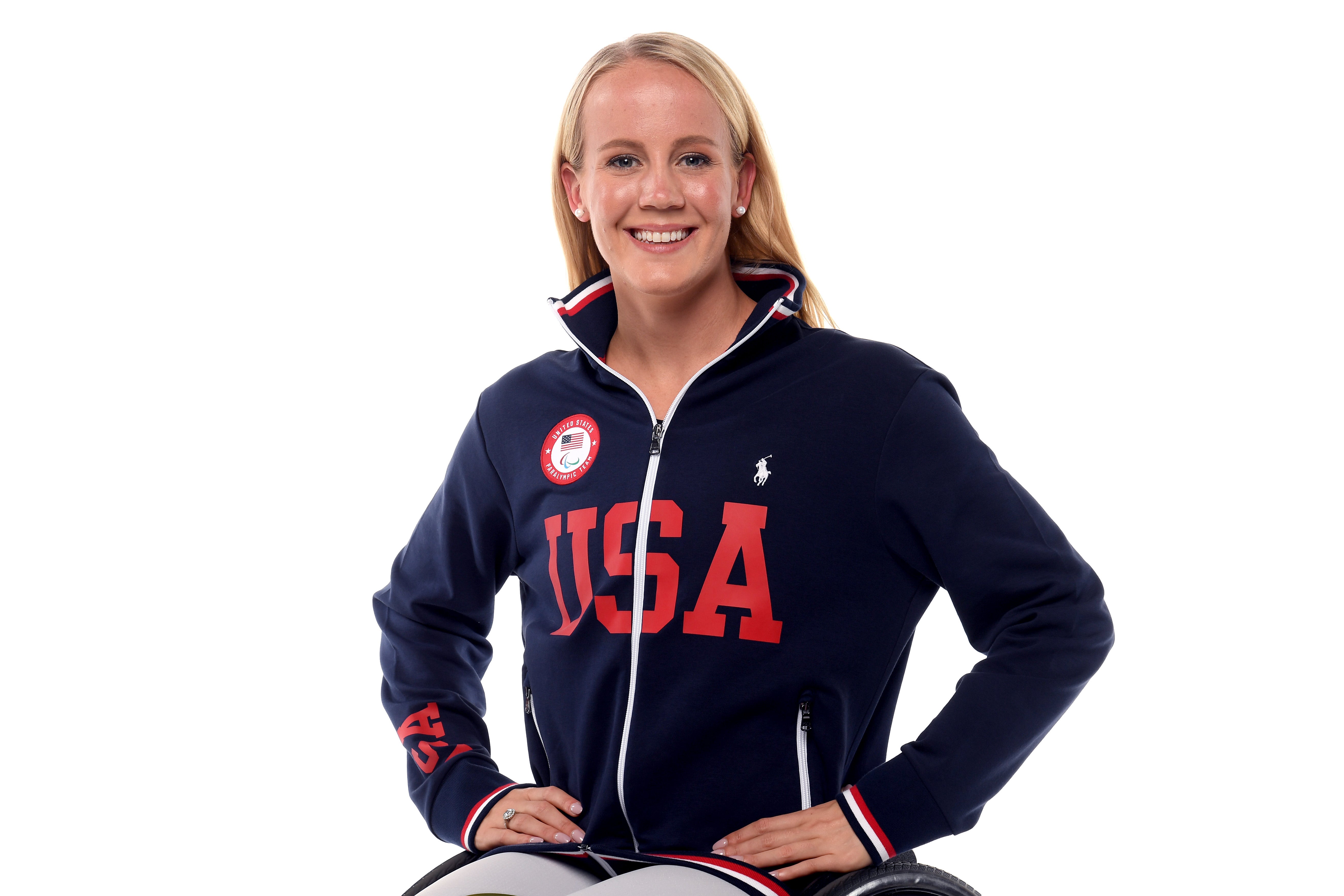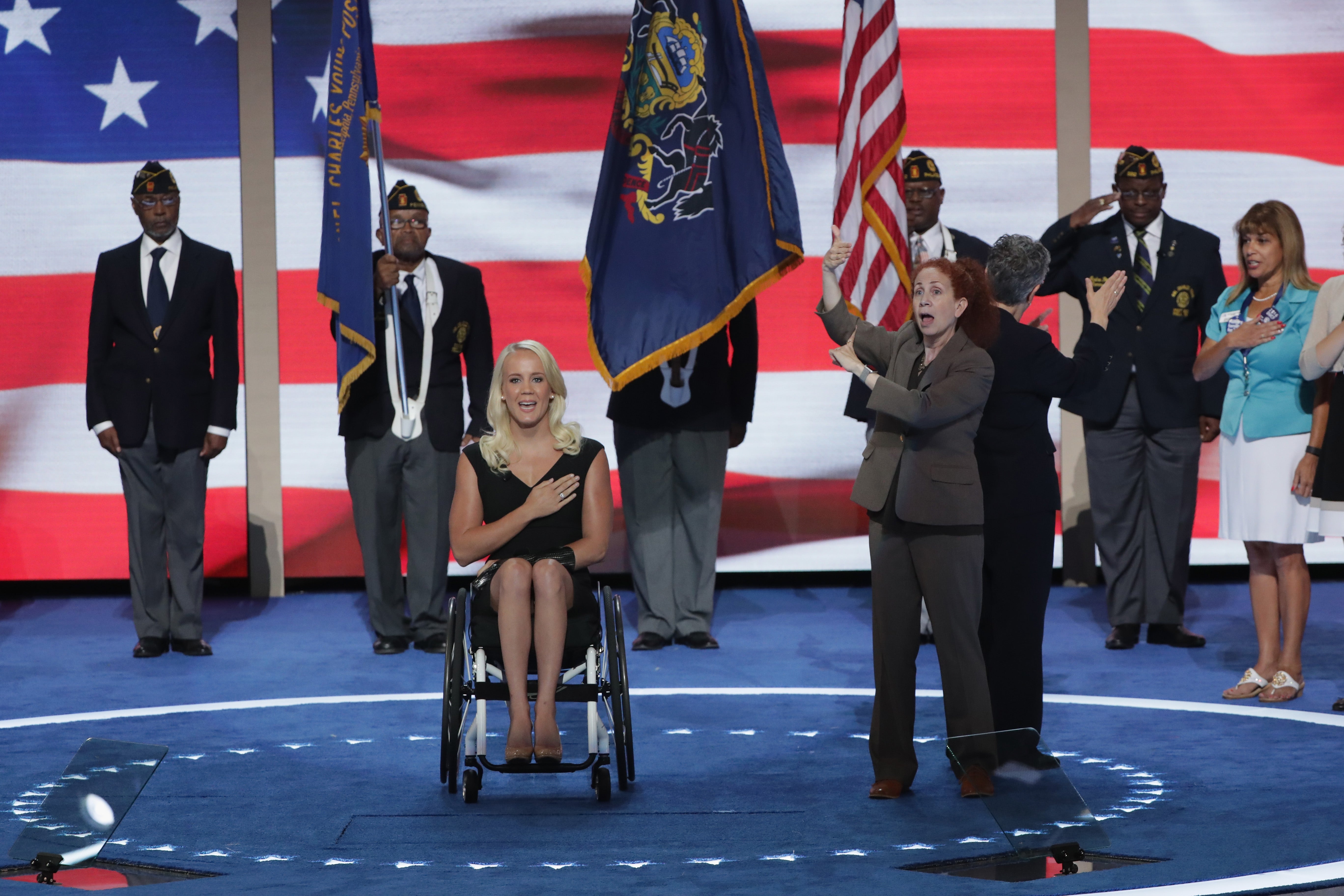Paralympics 2021: Who is Team USA star swimmer who was paralysed from epidural?
Weggemann recited the Pledge of Allegiance on the second day of 2016 Democratic National Convention

Your support helps us to tell the story
From reproductive rights to climate change to Big Tech, The Independent is on the ground when the story is developing. Whether it's investigating the financials of Elon Musk's pro-Trump PAC or producing our latest documentary, 'The A Word', which shines a light on the American women fighting for reproductive rights, we know how important it is to parse out the facts from the messaging.
At such a critical moment in US history, we need reporters on the ground. Your donation allows us to keep sending journalists to speak to both sides of the story.
The Independent is trusted by Americans across the entire political spectrum. And unlike many other quality news outlets, we choose not to lock Americans out of our reporting and analysis with paywalls. We believe quality journalism should be available to everyone, paid for by those who can afford it.
Your support makes all the difference.A routine epidural injection that went wrong during a bout of shingles left a 19-year-old Mallory Weggemann paralysed from the waist down.
Now the 32-year-old has struck gold at the Paralympic Games and fought her way back onto the podium for the first time since London 2012.
Within months of her 2008 injury, Weggemann’s sister, Christin, took her to watch the 2008 US Paralympic Team trials near their Minnesota home.
Weggemann had captained her high school swim team in the Minneapolis suburb of Eagan and now thought her competing days were over.
But what she saw then, set her on the road to Paralympic glory.
“I looked at my sister and said, ‘How cool would it be if I could be here in four years?’ ” Weggemann told Sports Illustrated.
“And that has kind of been marked as the day that the dream was born.”
With the help of a club coach from the University of Minnesota, Weggemann was back in the pool within a week, learning how to swim without the use of her legs.
It was hard. But despite defeats to children much younger than she was, she retrained her body and mind in the water, just as she was forced to to in daily life.
“After my injury, I really learned, as simple and silly as it sounds, how to take baby steps,” added Weggemann.
“Everything was broken down to doing the most basic tasks again for the first time—getting dressed, putting on shoes, being able to get in and out of bed on my own.”
And she learned not to feel sorry for herself as she embraced being a role model for others.
“We all carry circumstance in our life,’’ she says.
“We’ve all carried hardship. We’ve all moved ourselves through trauma and loss, but we are more than our circumstance.”
A year after her injury Weggemann started her degree at Gardner-Webb University in North Carolina, where she was part of the swim team, and competed in meets.

Weggemann’s mental and physical strength was on full display at London 2012 as officials reclassified her days before the 50m freestyle competition.
Despite going up against swimmers who all had some use of their lower body, she defied the odds to take gold, setting a US and Paralympic record.
Two years later, Weggemann was injured while showering in a New York hotel room, when a shower bench for disabled guests came away from the wall.
It left her with an injured arm which prevented her swimming for six months, with some doctors even suggesting she retire because of the damage.
But she refused to give up and has battled her way back to the pinnacle of the sport, and will swim in six total events in Tokyo.
Away from the pool Weggemann married her manager Jeremy Snyder, created the TFA Group, an agency and production company that creates content with adaptive athletes.
Weggemann also wrote her own book Limitless, with was published in March.
And in 2016 she recited the Pledge of Allegiance on the second day of the Democratic National Convention in Philadelphia, Pennsylvania.
Now with five events left to swim in Tokyo, Weggemann and her family have their sights set on a quick return to the medal podium.
Her SM7 classification indicates the athletes have use of their arms and trunk but limited or no use of their legs.
She is back in the pool for the 100m breaststroke on Saturday and the 100m backstroke on Monday.
Join our commenting forum
Join thought-provoking conversations, follow other Independent readers and see their replies
Comments